Popular Korean slang in 2020
Korean slang terms emerge every day through social networking sites (SNS), gaming live streams, variety shows, and vlogs. These context-specific terms come and go easily, making it difficult to catch on especially if you aren’t an avid SNS user.
Therefore, we have sieved through many Korean SNS accounts to narrow down 43 popular Korean slang terms in 2020 that will make you a true-blue in-ssa (인싸, insider) instantly.
1. 인스피리언스족 (in-seu-pi-ri-eon-seu-jok)

Image credit: @with.a_0823
This is a Konglish term derived by combining the English words “indoor”, “inspired” and “experience”. The word “족” (jok) translates to “tribe” and refers to the people who engage in “insperiences”.

Image credit: @seongbinlim__
The term “insperiences” was coined recently, when COVID-19 forced people to stay indoors and find new ways of entertaining themselves while social distancing. This inspired people to adapt activities that require you to leave the house into indoor experiences. Examples include setting up a home theatre to watch movies, building a gym at home, and assembling a home mini-bar for drinks with an ambience.
2. 누물보 (nu-mul-bo)
This term is derived from “누구 물어본 사람있어?” (nugu-mulleo-bon-saram-isseo), which translates to “Did anyone ask?”
Nu-mul-bo is used to tease someone when they share something boring. It is commonly used in text with the consonants “ㄴㅁㅂ”. It is also similar to the slang term “안물안궁” (ahn-mul-ahn-gung), which means “didn’t ask, not curious”.
3. 이생망 (ee-saeng-mang)

Image credit: @tvndrama.official
This useful slang is derived from “이번 생은 망했어” (ee-bon-saeng-eun-mang-haesseo), which translates to “I’m done for this life”. It is used when one faces difficult situations and feels hopeless. For example, you’d use it after doing badly for an important exam or messing up at work. It is an exaggerated way of saying “I screwed up badly”.
4. 고스팅 (go-seu-ting)
You may be familiar with the term “ghosting”. The Koreans have also adopted this handy slang and it refers to the act of disappearing from a conversation suddenly, as though one is a ghost.
5. 홧김비용 (hwat-kim-bi-yong)

Image credit: @miyeon_1004_
“홧김” (hwat–gim) translates to “being in a fit of anger” but it is used more loosely as “in the heat of the moment”, while “비용” (bi–yong) means “expenses”. The term is used when someone spends on self-care items to relieve stress. It also refers to impulse purchases.
6. 멍청비용 (mong-chong-bi-yong)
“멍청” (mong–chong) translates to “dumb” or “foolish” while “비용” (bi–yong) means “expenses”. This Korean slang refers to unnecessary expenses that were incurred due to one’s carelessness, such as buying the wrong item and having to spend more to buy the correct one.
7. 나심비 (na-shim-bi)

Image credit: @ariiiyun
This term is formed by combining “나” (na) meaning “my”, “심리” (sim-ri) meaning “psychological state”, and “가성비” (ka-seong-bi) meaning “cost-effectiveness”.
It’s used when someone makes purchases based on how much satisfaction it gives them. They usually don’t care about how expensive it is, as long as it puts them in a better mood.
8. 쓸쓸비용 (sseul-sseul-bi-yong)
“쓸쓸” (sseul–sseul) means “loneliness” while “비용” (bi–yong) translates into “expenses”. The term refers to expenses incurred when one is lonely and spends money on solo activities or pays for group activities in order to alleviate loneliness.
9. 혼코노 (hon-ko-no)

Image credit: @y_jjyu
This term is derived from “혼자 코인 노래방에 가다” (honja-ko-een-noraebang-eh-gada), which refers to singing at a coin karaoke by yourself. It’s part of a trend in Korea where people do social activities by themselves, and such activities can be seen as a form of 쓸쓸비용 (sseul-sseul-bi-yong).
There are also two other slang terms that refer to similar solo activities – 혼밥 (hon-bap) and 혼술 (hon-sul), which means “eating alone” and “drinking alone”. BTS’ Yoon-gi has even written a song titled Honsool.
10. 오놀아놈 (oh-nol-ah-nom)
This abbreviation is derived from “오우 놀 줄 아는 놈이네” (oh–nol-jul-ah-neun-nom-ee-neh), which translates to “Wow, this person really knows how to have fun”. It is used to refer to someone who knows how to enjoy life and play hard.
11. 내또출 (nae-ddo-chul)
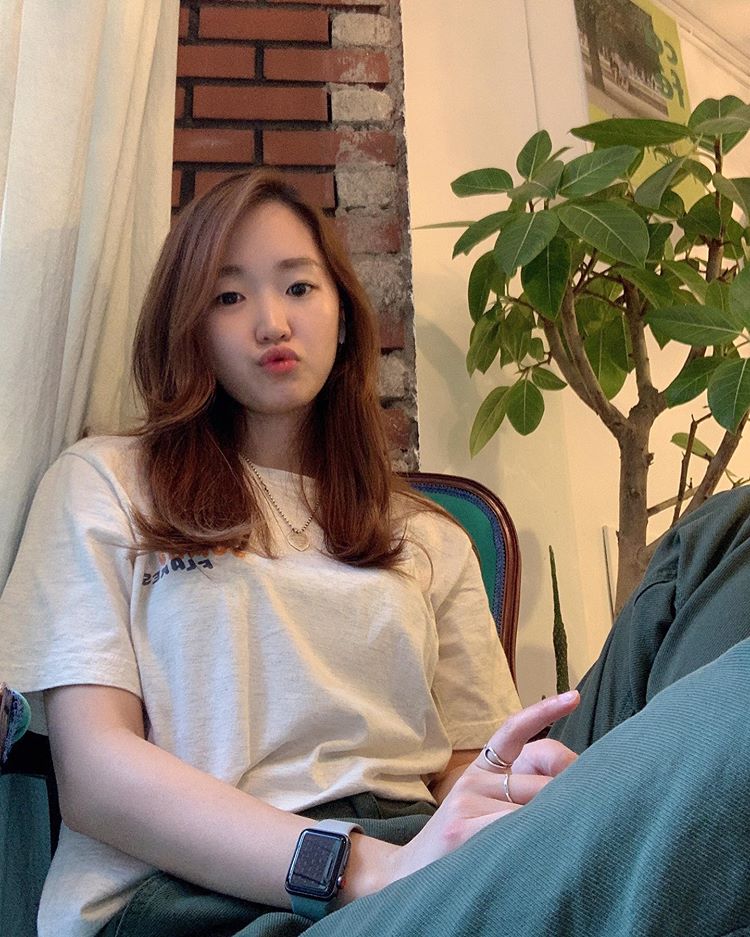
Image credit: @superssr
This term is derived from “내일 또 출근” (nae-il-ddo–chul-geun), which translates to “I have to go to work tomorrow again”. It is used to illustrate how working life never stops and reflects the drudgery of having to wake up early and go to work the next day.
12. 자만추 (ja-man-chu)
This is an abbreviation of “자연스러운 만남 추구” (ja-yeon-seu-reo-woon-man-nam-chu-gu), which means “meeting someone naturally”. The term is used to describe the desire to find love naturally without having to use dating apps or go on blind dates.
The two other variations of this slang term are 인만추 (in-man-chu) and 아만추 (ah-man-chu), which refer to “artificially meeting someone” and “okay with meeting anyone” respectively.
13. 비담 (bi-dam)
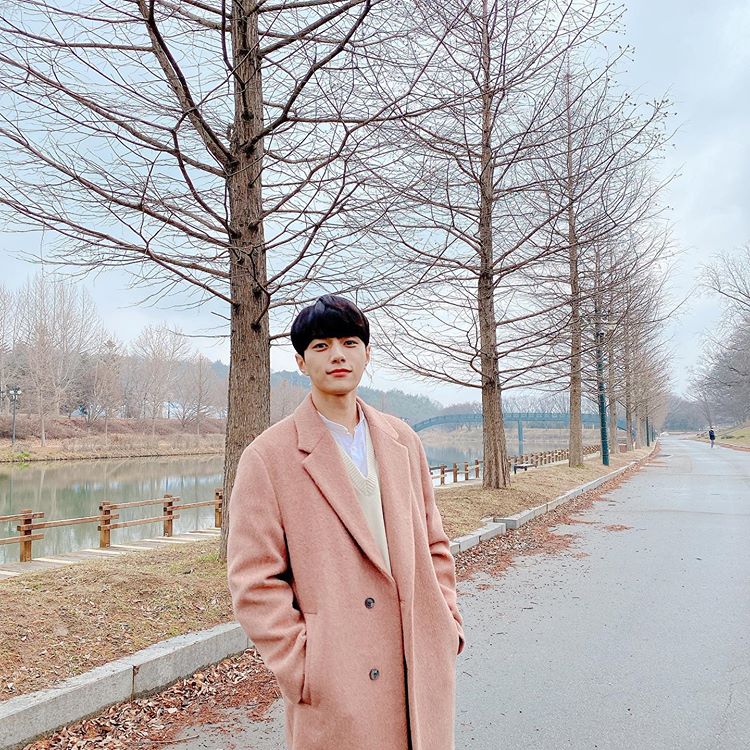
Image credit: @kim_msl
Bi-dam is the abbreviation of “비주얼 담당” (bi-ju-eol-dam-dang), which means “visuals in-charge”. This term is usually used to refer to the most good-looking person in a group, such as an idol boy band.
14. 쌉파서블 (ssap-pa-seo-beul)
This is a combination of the Korean slang “쌍” (ssang, extremely) and the English word “possible”, transliterated into “파서블” (pa-seo-beul). It is commonly used by millennials to refer to an action or scenario that is highly achievable. It can also be used to cheer someone on.
Other variations of this term include 쌉가능 (ssang-ga-neung) and 쌉에이블 (ssang-eh-ee-beul), both of which carry the same meaning.
15. 얼빡 (eol-ppak)

Image credit: @he_evvely
Eol-ppak is derived from “얼굴이 여백 없이 빡빡하게 들어가 있는 사진” (eolgulee-yeobaek-eobsi-ppakppak-hagye-deuleoga-it-neun-sajin) which translates to “a picture that zooms straight into one’s face without space around it”. It refers to the trend of taking really close-up selfies and videos.
Other variations of this term are 얼빡샷 (eol-ppak-syat), meaning “close-up shot”; 얼빡사진 (eol-ppak-sel-ka), meaning “close-up selfie”; and 얼빡직캠 (eol-ppak-jik-kaem), meaning “close-up fancam”.
16. 스라밸 (seu-ra-bel)/워라밸 (wo-ra-bel)
“스터디 라이프 밸런스” (seu-teo-dee-la-ee-beu-bael-lon-seu) is derived from the English phrase “study-life balance”, while “워크 라이프 밸런스” (wo-keu-la-ee-beu-bael-lon-seu) is from “work-life balance”. These two terms are used to describe finding a balance between personal life and studies or work.
17. 슬세권 (seul-se-kwon)
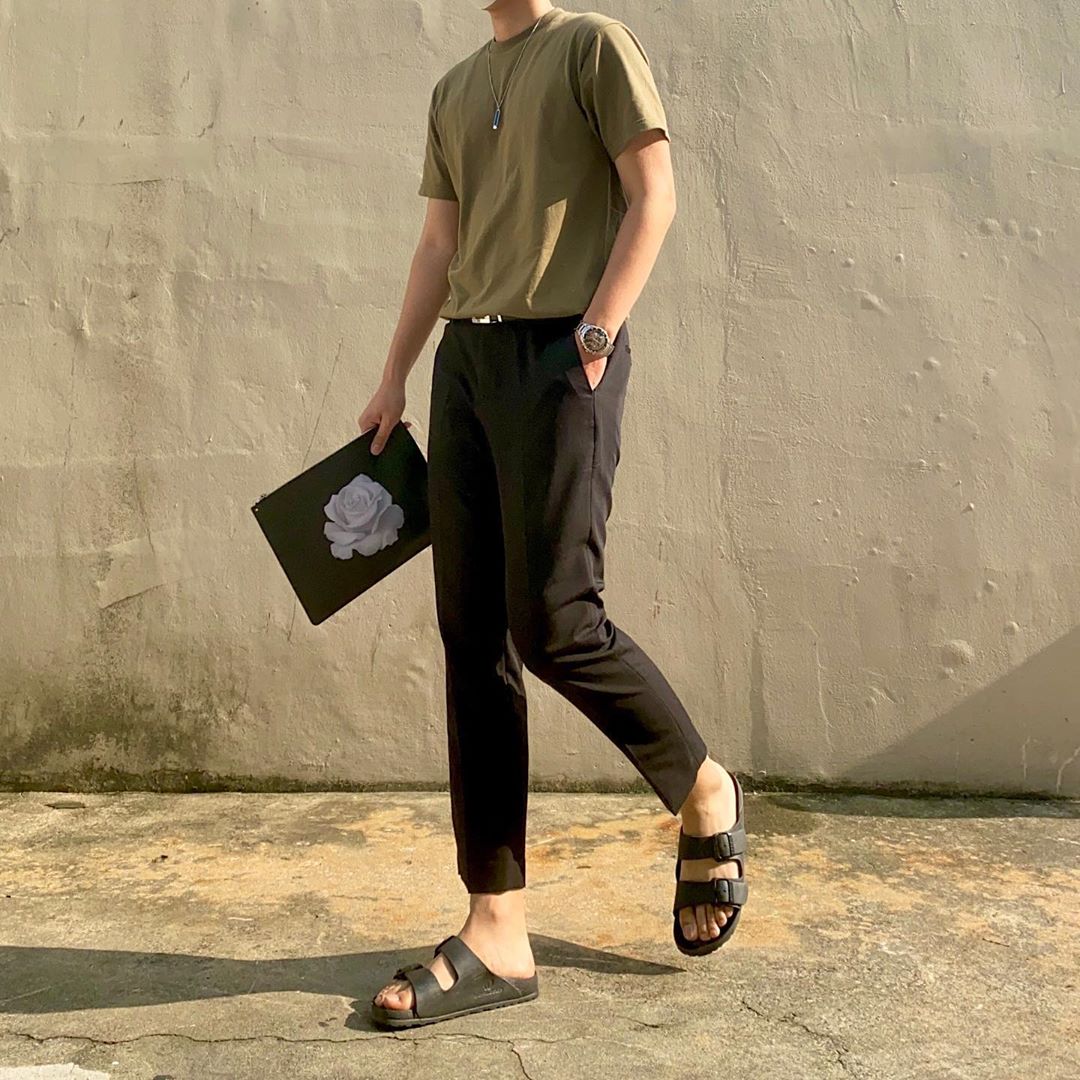
Image credit: @hyeo_nuuuu
This term is a combination of “슬리퍼” (seul-li-peo), meaning “slippers”, and “역세권” (yeok-se–kwon), meaning “station district”. It refers to places you can visit in very casual wear, such as slippers and sweatpants. This includes places in one’s neighborhood where there isn’t a need to dress up.
18. 복세편살 (bok-se-pyeon-sal)
This Korean slang is an abbreviation of “복잡한 세상 편하게 살자” (bokjap-han-sesang-pyeon-hagye-salja), which translates to “Let’s try to live well in this complicated world.”
It refers to not over-stressing yourself to achieve big things but instead to enjoy life your way. It can also be used as a way to comfort and motivate yourself when things get tough.
19. 오저치고 (oh-jeo-chi-go)
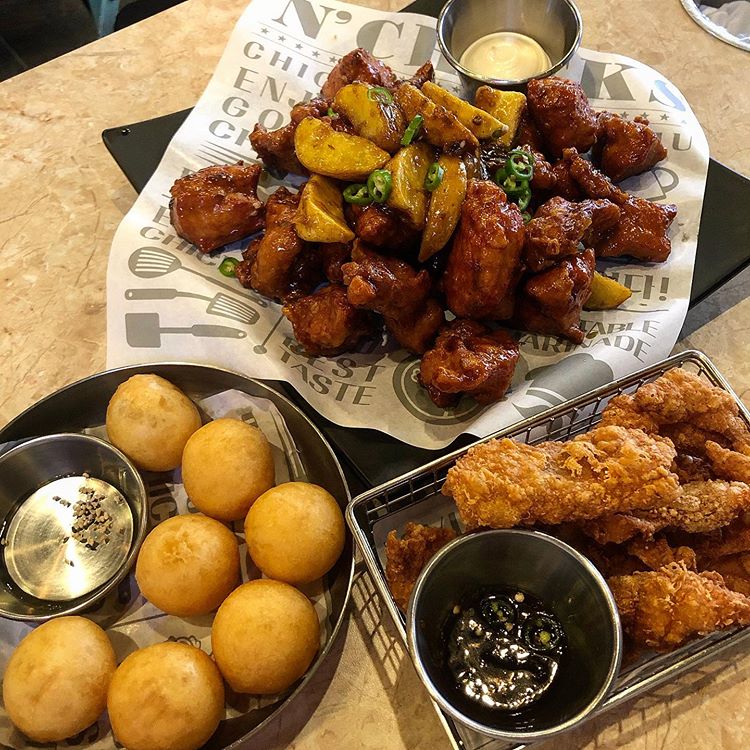
Image credit: @yummy._.dy
Oh-jeo-chi-go is derived from “오늘 저녁 치킨 고” (oneul-jeo-nyeok-chi-kin-go), which translates into “Let’s have chicken for dinner tonight.” It is a rather cute and casual term that was coined since many Koreans love to have fried chicken after school and for work gatherings.
20. 만반잘부 (man-ban-jal-bu)
This is derived from “만나서 반가워 잘 부탁해” (mannaseo-bangaweo-jal–butakhae), which translates into “Nice to meet, hope that we’ll get along.” This term is a friendly and casual way of greeting someone new, usually through text.
21. 삼귀다 (sam-gwi-da)

Image adapted from: starshipTV
This Korean slang was adapted from the word “사귀다” (sa-gwi-da), which means “officially dating”. The word “사” (sa), which also means “4”, is replaced with the word “삼” (sam), which means “3”. This means that “sam-gwi-da” is a notch lower and not quite at the “officially dating” stage yet.
22. 졌잘싸 (jyeot-jal-ssa)
This phrase is derived from “졌지만 잘 싸웠다” (jyeot-jiman-jal–ssa-wot-da), which translates into “Even though I lost, it was a good fight.”
This term refers to a situation where one has tried their best and lost but has no regrets. It can also refer to a situation where you don’t get your desired outcome, but you’ve achieved the best possible results within your abilities.
23. 최최차차 (choe-choe-cha-cha)

Image credit: @eunwo.o_c
This Korean slang is an abbreviation of “최애는 최애고 차은우는 차은우다” (choe-ae-neun-choe-aego-cha-eunwoo-cha-eunwoo-da), which translates to “My favourite is my favourite and Cha Eun-woo is Cha Eun-woo.”
The slang was coined by new fans of Cha Eun-woo, a member of boy group Astro. It’s used to express that their feelings for their favourite celebrity, which is “최애” (choe-ae), is separate from their newfound interest in Cha Eun-Woo.
It is often also adapted to include the surnames of other Korean celebrities.For example, you can use 최최김김 (choe-choe-kim-kim) or 최최이이 (choe-choe-lee-lee) to refer to Kim Soo-hyun or Lee Min-ho respectively.
24. 롬곡웊눞 (rom-kok-woop-noop)
When turned upside down, the slang term is read as “폭풍눈물” (pok-pung-nun-mul), which translates to “tears falling like a storm”. This term is used mainly when texting to illustrate sadness and is usually used as a reaction.
25. 팬아저 (paen-ah-jeo)

Image credit: @tvndrama.official
This is an abbreviation of the phrase “팬이 아니어도 저장” (paen-ee-ah-ni-eo-do-jeojang), which translates into “I’m still saving the picture even though I’m not a fan.” This term refers to the action of saving a picture of a good-looking celebrity even when one is not a fan.
26. 갑통알 (gab-tong-al)
Gab-tong-al is derived from the phrase “갑자기 통장을 보니 알바를 해야할듯” (gabjagi-tongjang-eul-boni-alba-reul-haeya-hal-deut), which translates to “the sudden feeling of wanting to take up a part-time job after looking at one’s bank account”.
It’s pretty self-explanatory – use this when your bank account balance is dismal and you suddenly gain motivation to take up a part-time job.
27. 얼죽아 (eol-juk-ah)
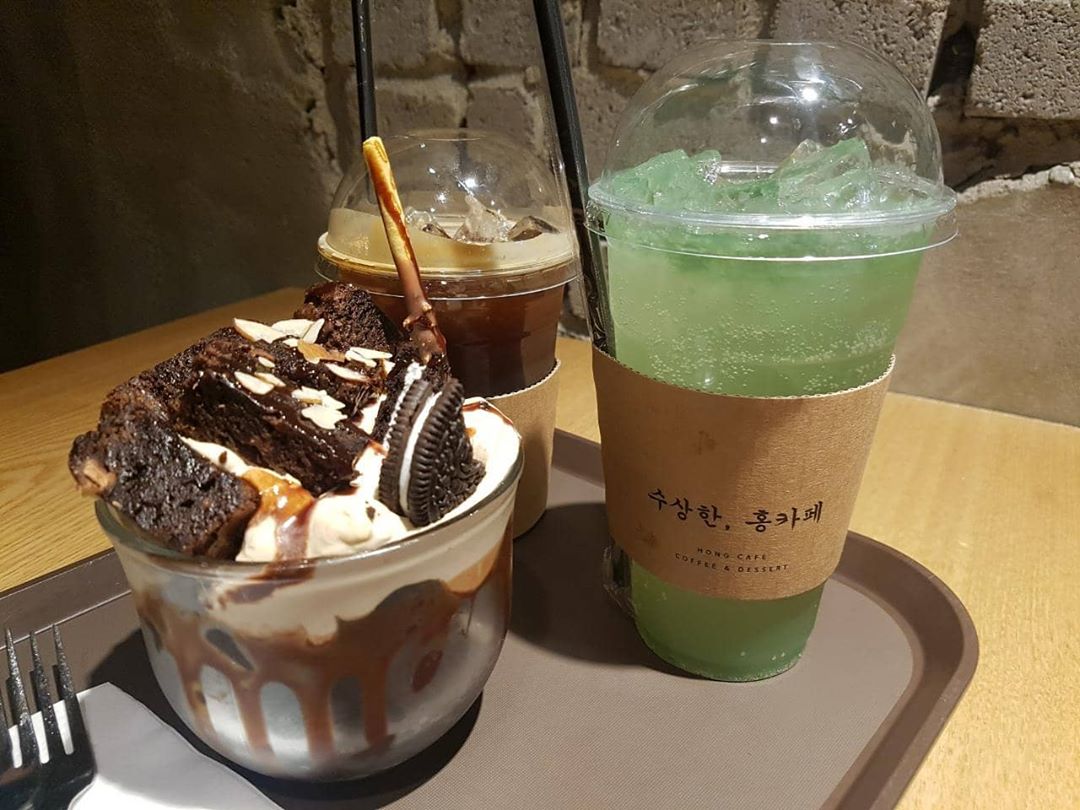
Image credit: @wave_moon02
Eol-juk-ah is an abbreviation of “얼어 죽어도 아이스” (eol-eo-juk-eo-do-ah-ee-seu), which translates into “Even if I freeze to death, I’ll still pick iced.” This term is used when stating one’s preference for iced drinks despite the weather or surroundings being very cold.
28. 알잘딱깔센 (al-jal-ddak-kkal-sen)
This abbreviation is derived from the combination of a few words: “알아서 잘” (al-ra-seo-jal) meaning “as you deem fit”, “딱 깔끔하고” (ddak–kkal-kkeum-ha-go) meaning “exactly and clearly”, and “센스있게” (sen-seu-it-ge) meaning “sensibly”.
This term is used in situations where one advises a friend to think carefully before making a decision or doing a certain action.
29. 점메추 (jeom-meh-chu)
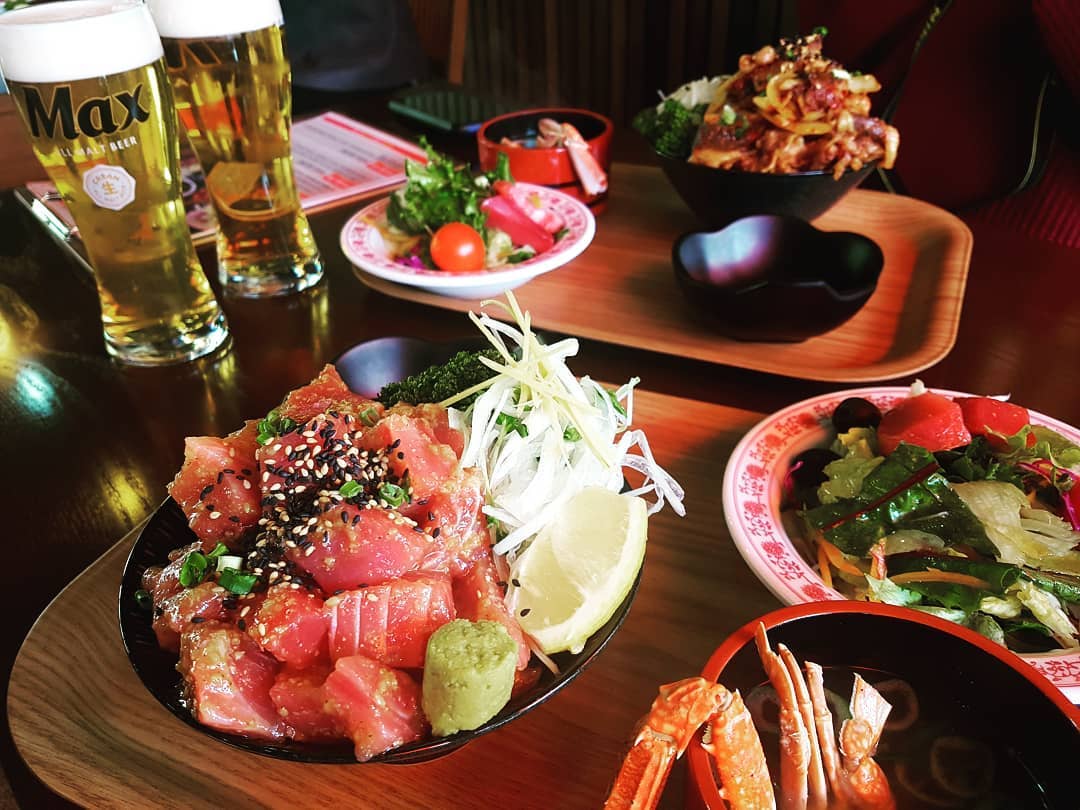
Image credit: @userdlip_ee
This term is an abbreviation of the phrase “점심메뉴 추천” (jeom-sim-meh-nyu-chu-cheon), which translates to “lunch menu recommendations”. This term can be used as a question or statement to ask or give lunch menu recommendations.
30. 라떼는 말이야 (la-tteh-neun-mal-ee-ya)
This Korean slang was adapted from the popular phrase “나때는 말이야” (na-tteh-neun-mal-ee-ya), which means “during my time”. The word “나때” (na-tteh, my time) was swapped with “라떼” (la-tteh, latte) because of how similar it sounds and the young generation’s penchant for lattes.
While 말이야 (mal–ee–ya) is a Korean expression used when explaining something, the word “말” (mal) also means “horse” in English. Hence, millennials came up with a hilarious Konglish version of this phrase: “latte is horse”.
31. 댕댕이 (daeng-daeng-ee)

Image credit: @bliss22223
Daeng-daeng-ee was derived from an older term called “멍멍이” (meong-meong-ee), which means “puppy”. This term was formed due to the similarity between the characters “댕” (daeng) and “멍” (meong). Both are cute ways to refer to puppies.
32. 넵무새 (neb-mu-sae)
Neb-mu-sae is formed by combining the words “넵” (neb), which means “yes”, and “앵무새” (aeng-mu–sae), which means “parrot”. It refers to someone who always replies “yes” to everything like a parrot. The term reflects toxic work environments where one is constantly pressured to say “yes” to everything, especially to superiors.
33. 와우내 (wa-woo-nae)

Image credit: @_seongeun_ha
Wa-woo-nae is derived from the English word “wow”, which is “와우” (wa–woo) in Korean, and “네” (ne), which is used at the end of a sentence to comment or react to something. Here, “네” (ne) is replaced with “내” (nae) because of how similar it sounds. This term is a cute way to express being impressed.
34. 뇌절 (nwe-jeol)
The word “절” (jeol) refers to a “verse” in a song. “네절” (ne-jeol) means “verse 4”, and it’s used to signify that someone keeps repeating their words because a song usually ends in three verses. But here, the word “네” (ne) is replaced with “뇌” (nwe), which means “brain”, both because of how similar it sounds and to also illustrate how your brain gets fried when someone keeps repeating themselves.
35. 횰로가 (hyol-ro-ga)

Image credit: @rica.choi
This term is formed by combining the words “홀로” (hol–ro), which means “alone”, and “욜로” (yol–ro), which means “YOLO” – “You Only Live Once”. The word “가” (ga) means “home”. This term is used to refer to living alone and having the freedom to decorate one’s house however one likes.
36. 핑프 (ping-peu)
Ping-peu is formed by combining the Konglish terms “핑거” (ping-geo), which means “finger”, and “프린세스/프린스” (peu-rin-se-seu/peu-rin-seu), which means “princess” and “prince” respectively.
This term refers to someone who constantly posts questions online without doing their own research first. It carries a negative connotation and paints the person as someone who’s lazy and waiting to be served, as if they’re royalty.
37. 순삭 (sun-sak)

Image credit: @sehee3122
This is derived from “순간삭제” (sun-gan-sak-je), which means “moment deleted”. It is used in situations where it feels like time has passed very quickly – almost like it’s being deleted – such as when doing something one likes.
38. 할많하않 (hal-mahn-ha-ahn)
This is an abbreviation of “할 말은 많지만 하지 않겠다” (hal-mal-reun-mahn-jiman-ha-ji-ahn-get-da), which translates to “I have many things to say but I won’t say them.” This term is used when you have an opinion about something but choose to not say it.
Another similar slang term is 노코멘트 (no-ko-men-teu), which means “no comment”.
39. 칼퇴 (kal-twe)
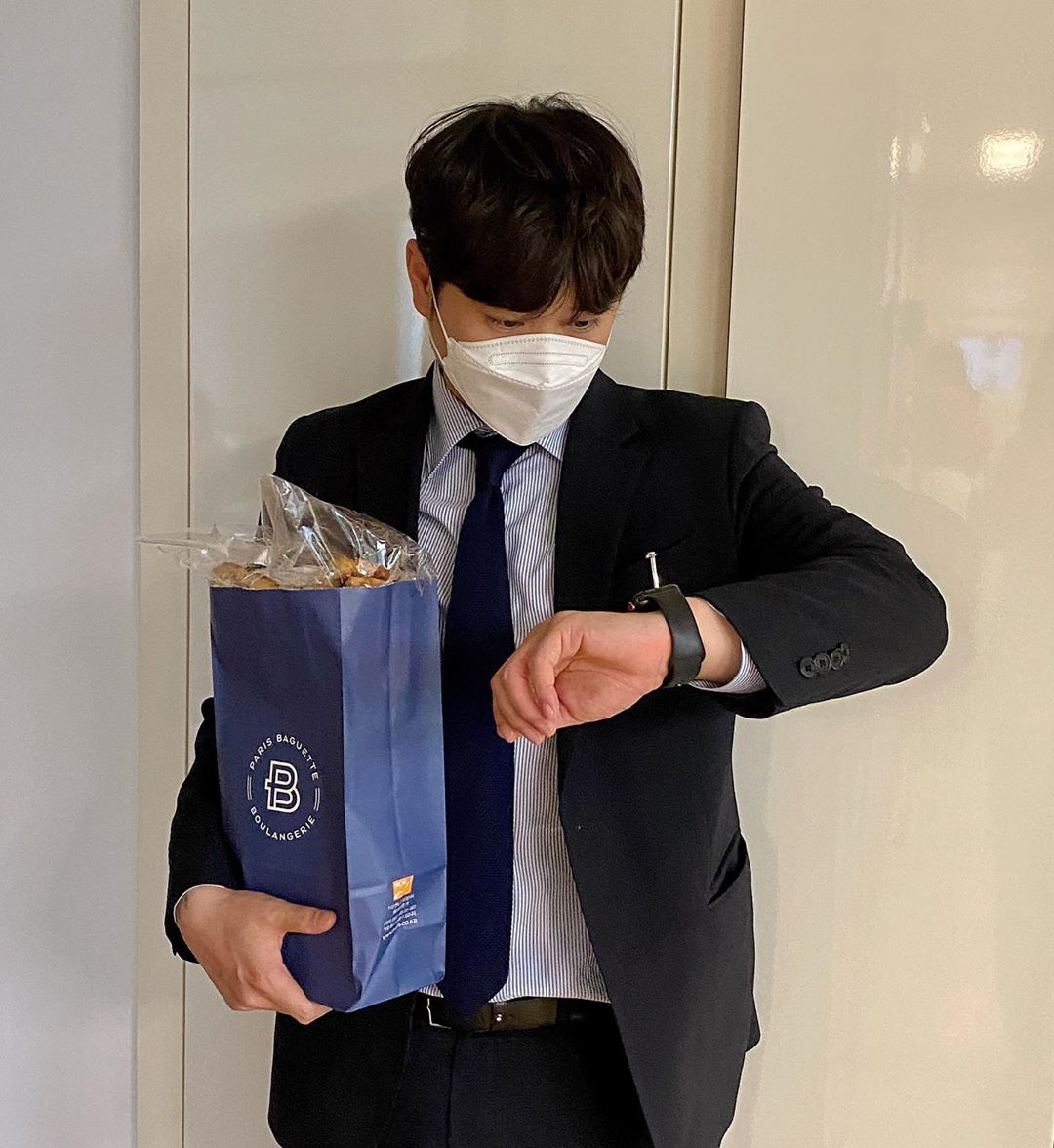
Image credit: @m.o.o.n.l.y
This term is derived from the phrase “칼같이 퇴근하다” (kkal-gat-chi-twe-geun-hada), which means “to get off work on the dot”. Use this for colleagues who knock off work at 6PM sharp, not a minute earlier or later.
40. 솔까말 (sol-kka-mal)
Sol-kka-mal is an abbreviation of the phrase “솔직히 까놓고 말해서” (sol-jik-hi-kka-noh-go-mal-hae-seo), which means “honestly speaking”. It’s used when sharing one’s honest thoughts and feelings about something, similar to how “TBH” (To Be Honest) is used in English.
41. 갑분싸 (gab-bun-ssa)

Image credit: @kbsdrama
Gab-bun-ssa is derived from “갑자기 분위기 싸해짐” (gab-ja-gi-bun-wi-gi-ssa-hae-jim), which translates to “the mood suddenly turned cold”. This term is used to describe the situation in which someone says something unnecessary or makes a joke that doesn’t land, thus creating an awkward and uncomfortable atmosphere.
42. 케바케 (keh-ba-ke)/ 사바사 (sa-ba-sa)
These slang terms are abbreviations of the phrases “케이스 바이 케이스” (keh-ee-seu-ba-ee-keh-ee-seu), which means “case by case”, and “사람 바이 사람” (saram-ba-ee-saram) which means “person by person”. It is used to refer to how things differ depending on circumstances or person.
43. 존맛탱 (jon-mat-taeng)
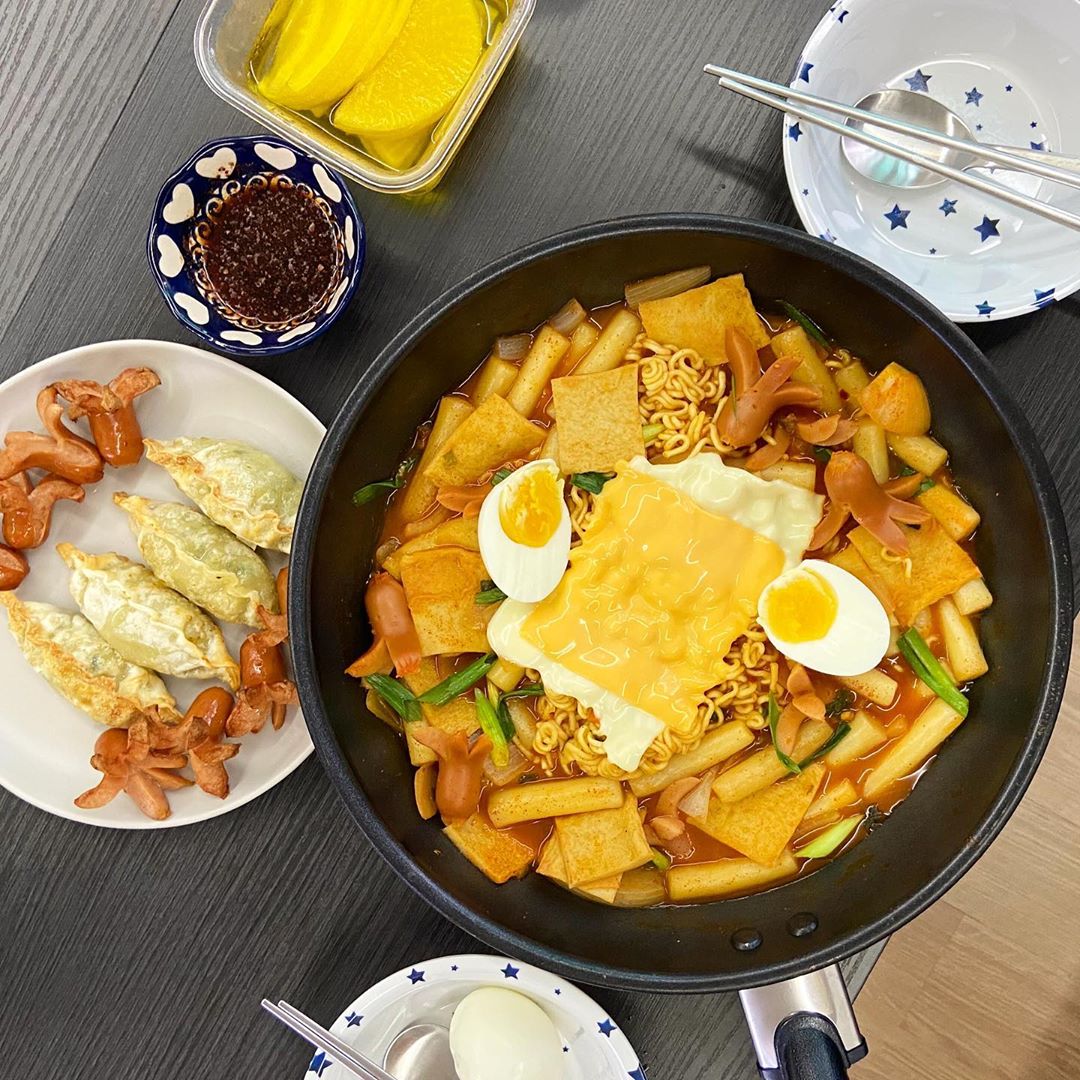
Image credit: @dani_._.1
Jon-mat-taeng has been around for awhile but it’s still popular in 2020. The word “존맛” (jon–mat) means “delicious taste”, while “탱” (taeng) is a word used for emphasis. The term is used in situations where the food is incredibly delicious. It is also written in a romanised form – JMT.
Becoming an in-ssa with popular Korean slang in 2020
When you keep up with slang terms, you are also keeping up with what’s trending. That’s what makes you a true in-ssa.
New slang terms are formed every single day, but only time can tell whether they become popular or not. Don’t let your curiosity of Korean slang stop at this article because there will definitely be more exciting ones to come.
Here are other Korean language articles:
- Essential shopping phrases
- Romantic Korean phrases
- Phrases for navigating public transport
- How to order food in Korean
- Moving to Korea guide
Cover image adapted from (clockwise from left): @miyeon_1004_, @kim_msl and @gangsterholly
